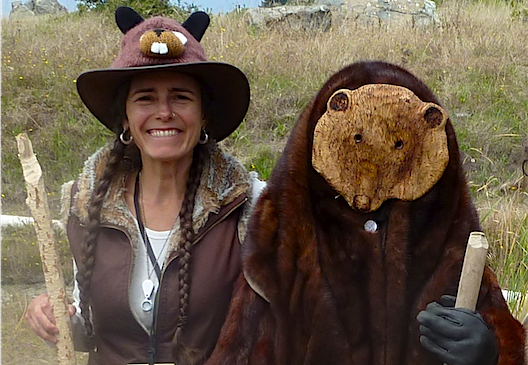Listen to this interview with WATER Institute Director Kate Lundquist on using beaver to restore endangered salmon in California.
Beaver dams slow down the flow of water off landscapes, recharge groundwater, expand wetlands, and prevent rivers from running dry in the summer. Unfortunately, beavers can be difficult neighbors, cutting down trees and causing damage to lawns, golf courses and private property. Kate Lundquist, Director of OAEC’s WATER Institute and the Bring Back the Beaver Campaign, was a guest on KMUD’s Thinking Clearly in early April, speaking to the benefits of beaver restoration, non-lethal management solutions, and moving policy forward to protect them.
“Beaver fall through the cracks, even though they are a keystone species,” Lundquist says. “There’s no budget to support them, to track them…We have this interesting conundrum. We’re spending so much money on salmonid recovery that to not look at beaver restoration as a component [would be unwise]—it’s not the be-all-end-all, it’s not the silver bullet, but it’s an underutilized technique,” Lundquist says.
Interested in helping track beaver sightings and observations? All you need is a camera and access to a computer or a smartphone. Go to iNaturalist.org, create an account, and upload your photos and log your observations. (The Bring Back the Beaver Campaign directors load the data onto the Beaver Mapper, a project by Riverbend Sciences.)






